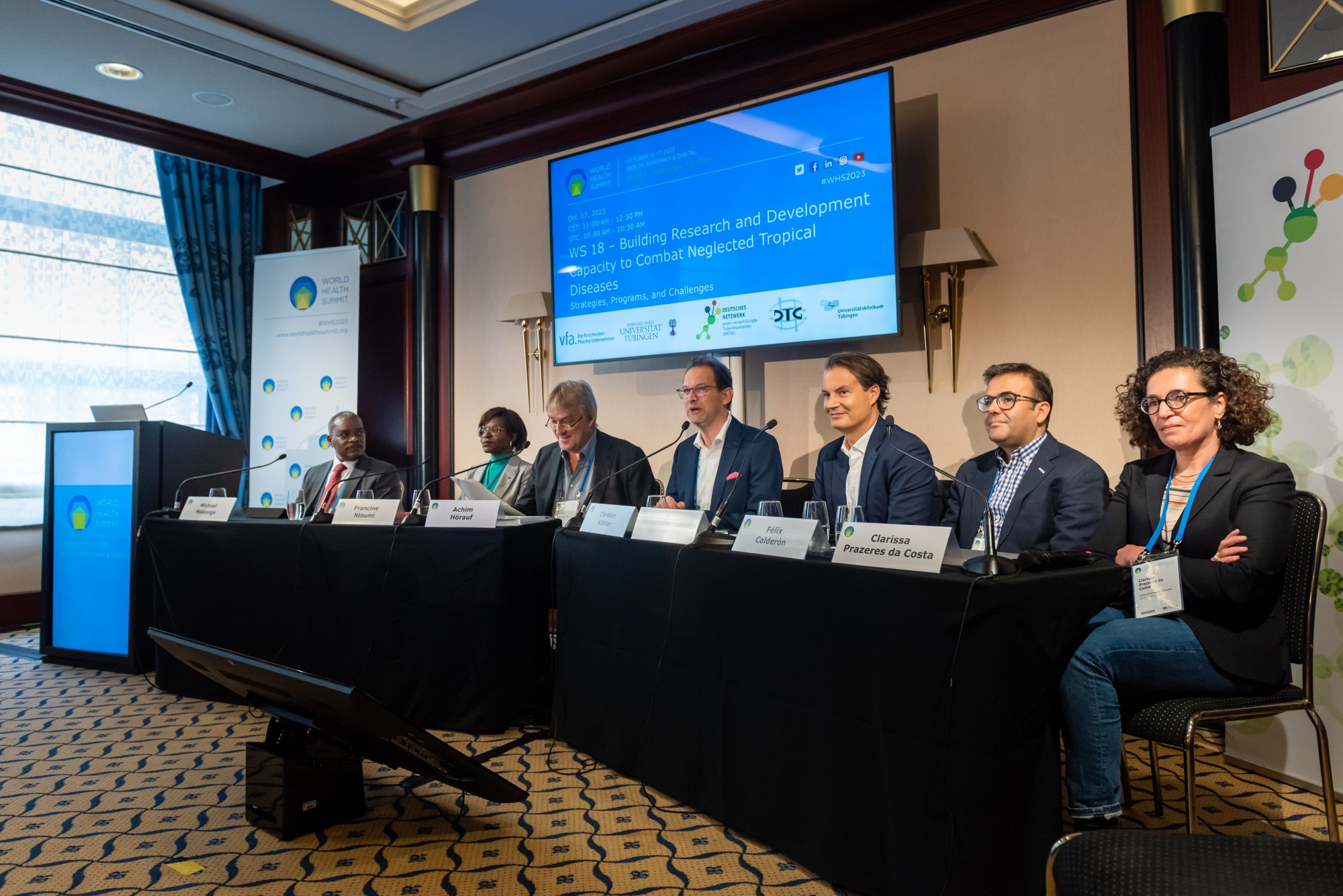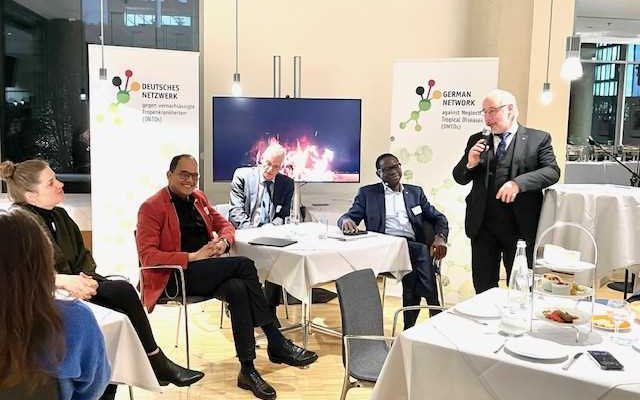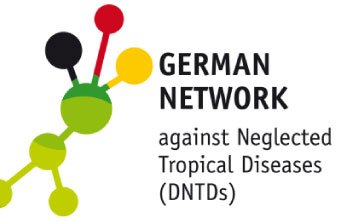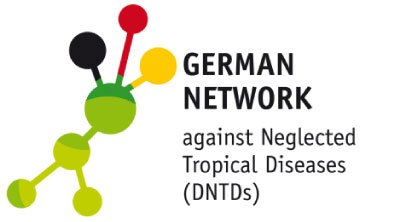
The German Network against Neglected Tropical Diseases or DNTDs, who are supported by Uniting to Combat Neglected Tropical Diseases (NTDs), share Germany’s progress on NTDs as well as the activities they championed for World NTD Day 2024 and beyond.
The German network against Neglected Tropical Diseases (DNTDs) forms a national platform in Germany designed to heighten awareness of NTDs and raise the level of commitment in Germany to fighting these diseases.
The network consists of various representatives from the fields of politics, science, civil society, and business endeavours all working to inform the public and draw more attention to NTDs in the country, convince politicians of the urgency of this topic, and rally more support in Germany for programs to prevent and control NTDs.
Germany’s progress on NTDs
The German government is one of the champions in the field of global health and pandemic preparedness. In this context, Germany is also engaged in the fight against NTDs. It supports research and development, but also the implementation of NTD projects. This commitment found expression in the fact that Germany was the first Western country to sign the Kigali Declaration on NTDs.
This is a very positive development since the founding of our national network in 2014. Since then, the commitment of the German government has significantly increased.
However, the German government's commitment is suffering from the current budget crisis. Germany has to make savings. After a long time, the budget is shrinking, and as a result, ministries relevant to NTDs are affected. It will have to be examined whether NTD programmes will also have to face cuts in budget.
This makes it all the more important that civil society continues to put pressure on politicians to give a voice to the people affected by NTDs in endemic countries. This is why we took part in World NTD Day on 30 January 2024.
World NTD Day for DNTDs
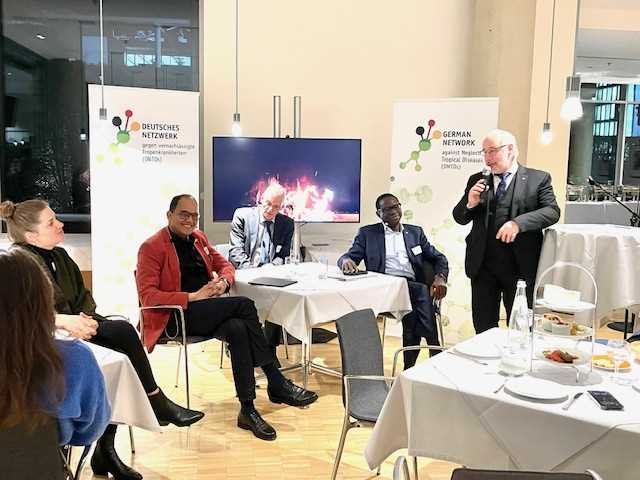
This year, we convened a ‘fireside chat’ for World NTD Day. We were able to attract the Ambassador of Rwanda, H.E. Igor Cesar, and the Member of the Bundestag, Dr Karamba Diaby with a moderator of Michael Herbst, co-chair of VENRO (the umbrella organisation of 140 development and humanitarian NGOs in Germany). The discussion took place in front of around 60 guests, including other MPs, representatives from ministries and experts from the field of global health.
The Rwandan Ambassador pointed out that after the 1994 genocide in his country, people committed themselves to putting people, citizens, and politics at the centre of their interests. This included recognising that people have a right to health. A health insurance system was introduced, from which 97 per cent of all Rwandans now benefit.
Dr Karamba Diaby emphasised that women make up 60 percent of the Rwandan parliament. This is important, he said, because women play the main role in the country's development and contribute significantly to progress. In this respect, the East African country is a role model for all countries in the world.
The guests also talked through interesting topics including best practice in Rwanda and Africa RE: health systems, African ownership in strengthening health systems, and local production of medicines and vaccines in the country.
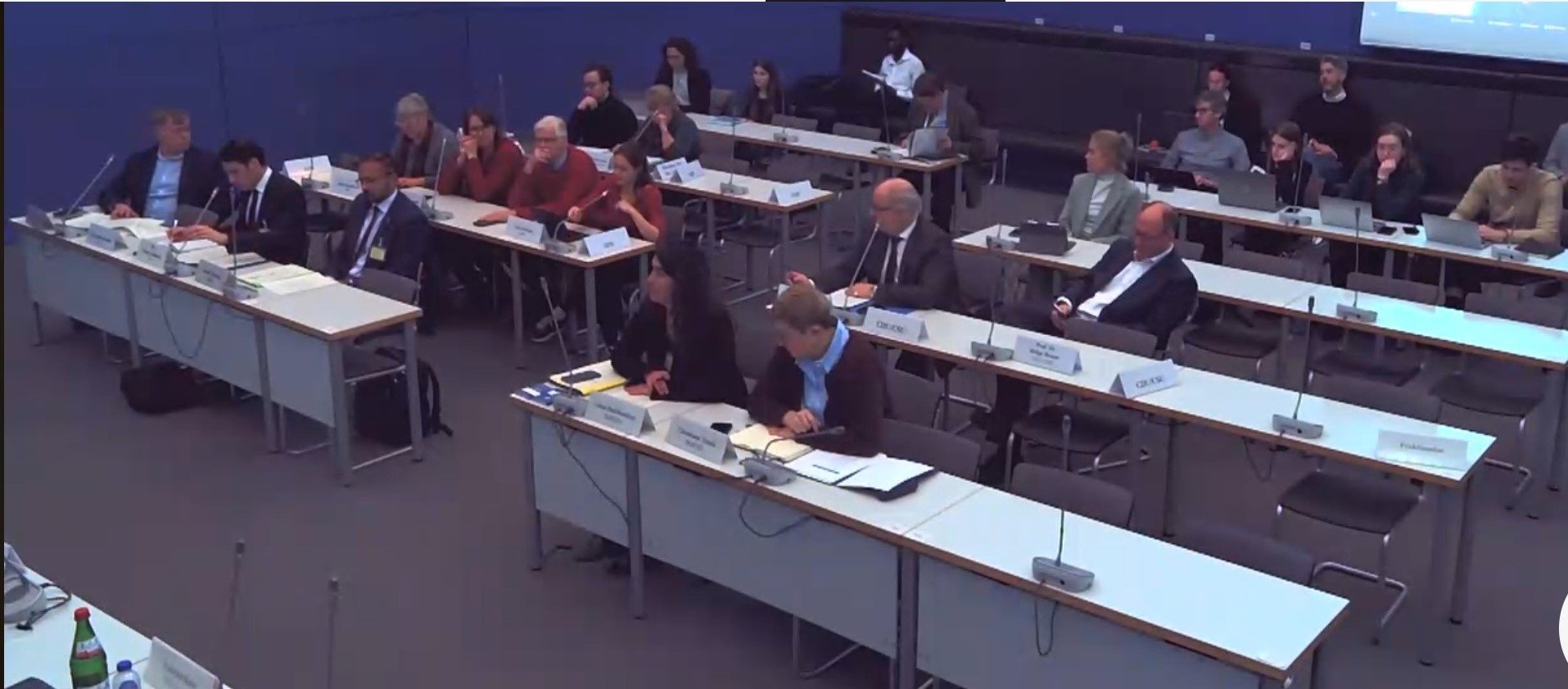
The week of World NTD Day, with the help of the chairperson of the Subcommittee on Global Health of the German Bundestag, we were also able to initiate a hearing in the Bundestag Subcommittee, questioning the German Federal Government on its activities to combat NTDs, with fifteen minutes exclusively dedicated to the diseases.
Parliamentarians asked questions about further possibilities of financing NTD activities in times of tight budgets; the production of vaccines to combat NTDs locally in endemic countries; further support for NTD research or measures in Europe to take into account the migration of vectors due to climate change in research, and in the field of public health, pushing for representatives of the Federal Ministry for Economic Cooperation and Development and the Federal Ministry of Health to respond. Debating an issue is important at this level and initiatives like these show us that the Parliamentary Advisory Council on Neglected Tropical Diseases support us continuously.
Many of our members also organised information events on NTDs in various cities in Germany, in order to raise awareness for infectious diseases amongst the German population.
Future plans for DNTDs
Looking to the year ahead, the German Network against Neglected Tropical Diseases is planning several activities for 2024, including an event specifically on climate and NTDs, given the impact of climate change on NTDs is becoming increasingly evident.
Another focus will be the G7 process, with the G7 held this year in Italy in June. We look forward to collaborating with our Italian colleagues on this.
We will organise a session on NTDs at the World Health Summit, as last year’s session on building research and development capacity to combat NTDs was received really well with the audience - you can read about that on our website here. We’re also exploring participation in the 2024 AIDS Congress in Munich in July to see whether we can make an impact.
